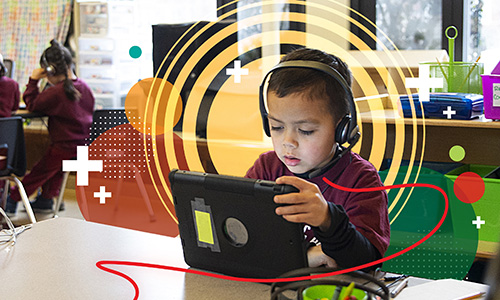Journal article
Moving from data to making a difference
2013
TASA INSIGHT Magazine 28(2),17-21.
By: Andrew Hegedus

Abstract
The problems faced within education resemble the problems in many social settings in that they lack clear definitions, have many potential causes, lack simple solutions, and defy straightforward measurement. In this article, Andrew Hegedus shares a view on the types of problems faced in education and outlines key characteristics of a process that begins with collecting data and ends with evaluating progress.
See MoreThis article was published outside of NWEA. The full text can be found at the link above.
Related Topics


MAP Reading Fluency with Coach Evidence Base
This document provides an overview of the research underlying MAP Reading Fluency with Coach’s AI-powered intelligent reading tutor and the research on key elements of early literacy instruction. It describes the components of the MAP Reading Fluency with Coach pedagogy and the research base supporting each component.
By: Amy Endo
Products: MAP Reading Fluency
Topics: Early learning, Empowering educators, Innovations in reporting & assessment, Reading & language arts


District and school leaders’ perspectives on leading & learning during the COVID-19 pandemic
This report captures the perspectives of district, school, and teacher leaders (hereafter referred to as “local leaders”) to surface best practices for supporting student learning during COVID-19.
By: Hayley Weddle, Ayesha K. Hashim, Ogechi Irondi
Topics: COVID-19 & schools, Empowering educators


The instructional legacy of COVID-19: Teacher adaptation in response to the pandemic
This study investigated teacher adaptation to the changes in teaching conditions caused by the transition to distance learning in the COVID-19 pandemic.
By: Helena Connolly, Naina Abowd, Catherine C. Chase
Topics: COVID-19 & schools, Empowering educators


The American Rescue Plan provides $122 billion for COVID recovery in schools. With more than 40 state plans approved, how are districts collecting, monitoring, reporting and learning from the unprecedented interventions? What can districts do now to design and implement data collection processes that will shape collective learning? In this webinar, you will hear how district leaders and researchers are approaching this opportunity to alter life outcomes for generations.
By: David Brackett, Jacob Cortez, Dan Goldhaber, Emily Morton
Topics: COVID-19 & schools, High-growth schools & practices, Informing instruction


This study examined the stability of social-emotional learning (SEL) skills and the extent to which students’ initial level in SEL skills in 6th grade and growth in SEL skills from 6th to 8th grade are related to students’ successful transition to secondary school. Findings suggest that understanding how a student develops social-emotionally can improve identification of students not on track to succeed in high school.
By: James Soland, Megan Kuhfeld
Topics: Social-emotional learning, High school, Middle school


Family perceptions of participating in a structured summer kindergarten transition program
Researchers interviewed parents whose children participated in a three-week structured kindergarten transition program designed to promote parental involvement in school, reduce students’ chronic absenteeism, and increase children’s readiness for kindergarten. Interviewees expressed that participating in the program yielded benefits for themselves and their children, and proposed various ways that adjusting the program could better meet the needs of all stakeholders. Parent suggestions were synthesized into multiple implications for practice and substantiated by current relevant literature.
By: Christopher Merideth, Beth Cavanaugh, Sue Romas, Nicole Ralston, Eva Arias, Beth Tarasawa, Jacqueline Waggoner
Topics: Early learning, Empowering educators


Addressing COVID-19’s disruption of student assessment
In this Inside IES Research blog, RAND and NWEA researchers share some early findings from their work under an IES grant to develop strategies for schools and districts to address the impacts of COVID-19 disruptions on student assessment programs. In the blog, they describe some key findings from surveys and interviews on key concerns of districts and schools arising from the lack of assessment data from spring 2020.
By: Jonathan Schweig, Andrew McEachin, Megan Kuhfeld
Topics: COVID-19 & schools, Empowering educators


